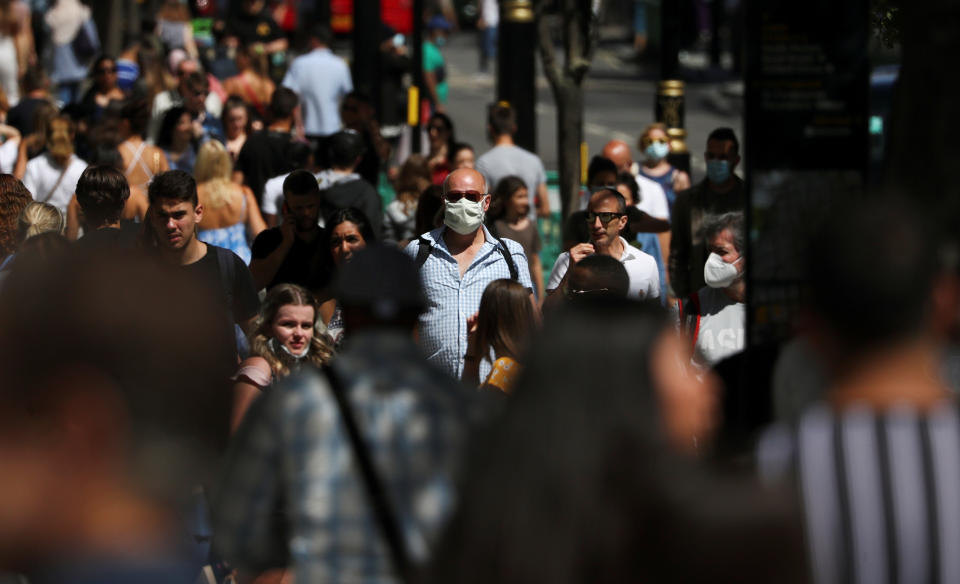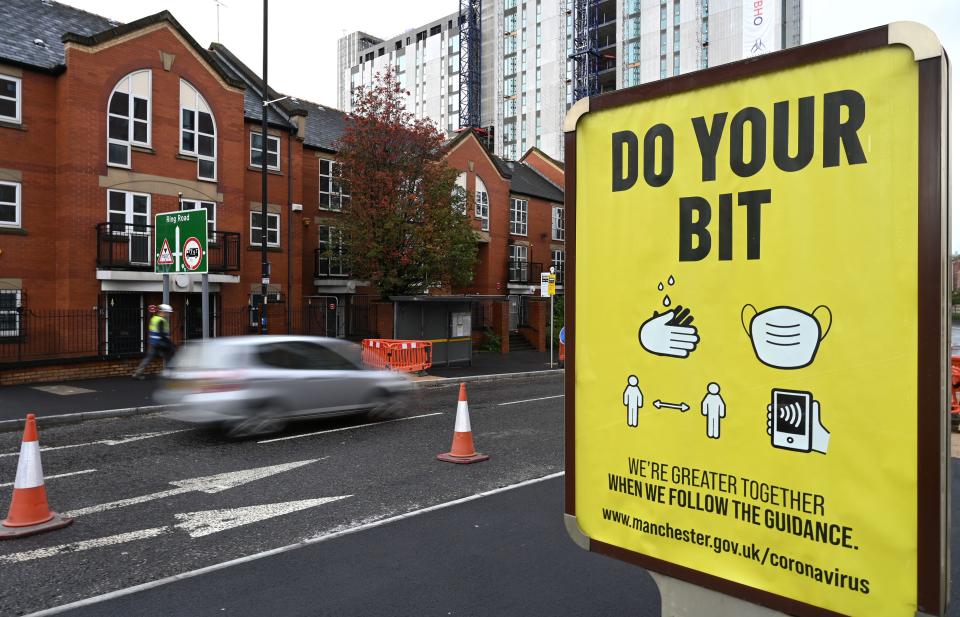Scientists backing ‘herd immunity’ COVID-19 strategy ‘have no humanity’, expert says

Several medical experts have criticised a group of British scientists who have argued for a herd immunity approach to tackling COVID-19.
Academics from the universities of Oxford, Nottingham, Edinburgh, Exeter, Cambridge, Sussex, York, Strathclyde, Leicester and East Anglia, as well as St George’s and Queen Mary universities in London, are among experts from around the world who have signed a declaration that calls for less vulnerable people to be allowed to return to normal.
However, one medical expert said the scientists who have signed the so-called Great Barrington declaration are “totally lacking in humanity”.
Dr Gabriel Scally, a director at the World Health Organization (WHO) who is also a member of the Independent Sage committee, said the scientists who signed it “advocate ‘survival for the fittest’ and virtual imprisonment for the vulnerable and older people”.
Watch: What is herd immunity?
He added: “They also ignore long COVID, and the risk of long-term effects of infection which seems harmless now.”
His comments were echoed by Stephen Reicher, another member of the Independent Sage, who said the herd immunity proposition was “an outrageous position” that had been “rejected by all scientific organisations”.
How to undermine a scientific consensus that gets in the way of profits:
1. Get a few individuals to take an outrageous position rejected by all scientific organisations
2. Boost them through a media obsessed with controversy
3. Claim scientists are divided
4. Ignore science https://t.co/2cOmoSJVSX— Stephen Reicher (@ReicherStephen) October 7, 2020
Top German scientists:
1. Herd immunity not possible bc immunity too short.
2. Not feasible to go 'shield vulnerable' approach bc impossible to fully identify & isolate them.
3. Potential serious, long-term damage to young/healthy also from this virus. https://t.co/ETW50WYHAK— Prof. Devi Sridhar (@devisridhar) October 7, 2020
Devi Sridhar, who advises the Scottish government on COVID-19, cited German scientists who said there was a “potential serious, long-term damage” to people who are deemed less vulnerable to the disease.
The leader of the NHS in England, Sir Simon Stevens, recently said that asking all over-65s to shield to slow the transmission of the second wave of coronavirus would be “age-based apartheid”.
Professor Jeremy Rossman pointed out that research suggests there have been cases of re-infection of the virus, adding that Sweden, which adopted a herd immunity approach, was “not able to successfully protect the vulnerable population”.
The declaration calls for what it calls “Focused Protection”, saying its signatories have “grave concerns about the damaging physical and mental health impacts of the prevailing COVID-19 policies”.
It adds: “As immunity builds in the population, the risk of infection to all – including the vulnerable – falls.

“We know that all populations will eventually reach herd immunity – i.e. the point at which the rate of new infections is stable – and that this can be assisted by (but is not dependent upon) a vaccine.
“Our goal should therefore be to minimise mortality and social harm until we reach herd immunity.”
Prof James Naismith, director of the Rosalind Franklin Institute, and of the University of Oxford, said: “The declaration risks the same error we have seen with the UK’s track, trace and isolate scheme – one can promise a scheme that is very easy to describe but is hard to deliver.”

Sweden is one of just a few countries that did not impose a compulsory lockdown to deal with coronavirus.
Restrictions in the country were voluntary, and authorities argued that the chances of finding a cure were slim and that allowing the population to develop herd immunity was a better strategy.
Following an initial spike in cases and deaths at the start of the pandemic, both have lowered and remained stable – although there has been a recent uptick in cases.
Watch: How is coronavirus treated?
Coronavirus: what happened today
Click here to sign up to the latest news and information with our daily Catch-up newsletter

 Yahoo Movies
Yahoo Movies 

